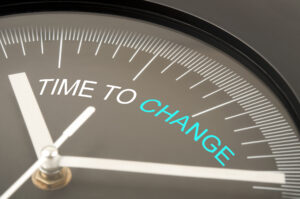 Want to be a better human with better leadership habits? Follow these custom steps.
Want to be a better human with better leadership habits? Follow these custom steps.
First consider what improvements you want to work on. Not what you should do, but instead what you want to do. You’re more likely to attempt to change your behavior if you focus on something appealing to you.
| Note: A longer version of this blog appears on the Coach.me website with the headline “Want to be a better human and leader? Adopt powerful habits to propel you.” It explains the back story of how this blog came to be—my inability to log onto the virtual conference #MediumDay and talk about leadership habits there. #fail #lessons learned |
Next, before you narrow in on a topic, broaden your view to consider the possibilities. Think about the big buckets that personally interest you, which could be some of the following:
- Inner development goals to help you improve your effectiveness today. These goals, which my Coach.me host Erno Hannink introduced me to, may be motivating. They’ve been developed to support individual progress toward achieving the United Nation’s 2030 sustainability development goals.
-
- Being — making sure you’re being true to your values and yourself
- Thinking – using and improving your cognitive skills
- Relating – caring for others, including being empathetic and compassionate
- Collaborating – practicing social skills, especially as you work with others
- Acting – enabling change.
- Human-centric goals to differentiate you from machines, especially AI, namely:
- Physical well-being
- Mental well-being
- Social interactions
- Time-oriented goals to inspire you to prepare for the future while living in the present:
- Now
- Near future (within the next 2 years)
- Future (2 years and beyond)
When you broaden your view, you position yourself to choose the best direction for yourself right now.
You’re now ready to reflect on what’s the one most interesting and useful thing for you to do now. You’re ready to choose one habit to build and adopt.
Some of the more common specific leadership habits focus on being, thinking, and relating, such as:
- Practicing self-care to be in service to yourself, especially the trifecta supporting your health, stamina, and resilience. These three are exercise, sleep, and diet.
- Pausing before speaking or acting to be more The pause gives you space between stimulus and response to decide what to do next. In this response lies growth and freedom, according to Viktor Frankl, the Austrian psychologist and Holocaust survivor who encouraged individuals to find the meaning in their lives.
- Setting a clear intention, such as asking and answering the question “How do I want to show up in this situation?” The answer to this question guides you in figuring out how to relate to others.
- Reframing situations to help you see them from a different perspective. By changing your viewpoint, you often can open up new possibilities to solve problems more creatively and beneficially.
- Practicing a daily act of kindness, including showing gratitude for people’s positive actions. By doing so, you’ll encourage individuals to continue their good work and you’ll build empathy “muscles” for yourself that help you. For example, you can improve your ability to understand, care for, and support others, as well as increase your self-awareness.
Generally, you want to work on one new habit at a time. Be sure to experiment to make sure the habit works well for you. Habits are very personal. (What works for one person, may not work for you.) Then once your habit becomes part of your repertoire, you can add another habit. And then continue adding.
During our #MediumDay session on leadership habits, several participants expressed interest in how to set long-term goals and visions, including communicating them. Future-focused habits can be harder to adopt because of the way our brain works. Our natural inclination is to value things closer to us, both in physical proximity and more immediate in time. Our brain also prefers immediate gains over longer-term rewards.
Yet, focusing on the future is a valuable and necessary leadership skill, named “prospection” in the new book Tomorrowmind: Thriving at Work with Resilience, Creativity, and Connection—Now and in an Uncertain Future by Gabriella Rosen Kellerman and Martin Seligman. The two authors define the term as “the mental process of projecting and evaluating future possibilities and then using these projections to guide thought and action.”
Also, based on the authors’ research, leaders who are skilled at prospection are good planners, not only taking time to think–and especially daydream–about the future but also engaging their teams in joining them. This foresight process is more involved and extensive than deciding on one individual behavior to change.
If you’re interested in developing your prospection skills, also consider building your courage, creativity, optimism, and perseverance skills. They all contribute to the inner development goal of acting to enable change.
And at some point, work on your outer development too, that is bringing the outside world in by introducing yourself to new concepts. If you expand the thought leaders, topics, and trends you follow, you can more easily expand your perspective and encourage yourself to think about and test new ideas.
Any questions, habits that work really well for you, or anything else? Please share!

0 Comments